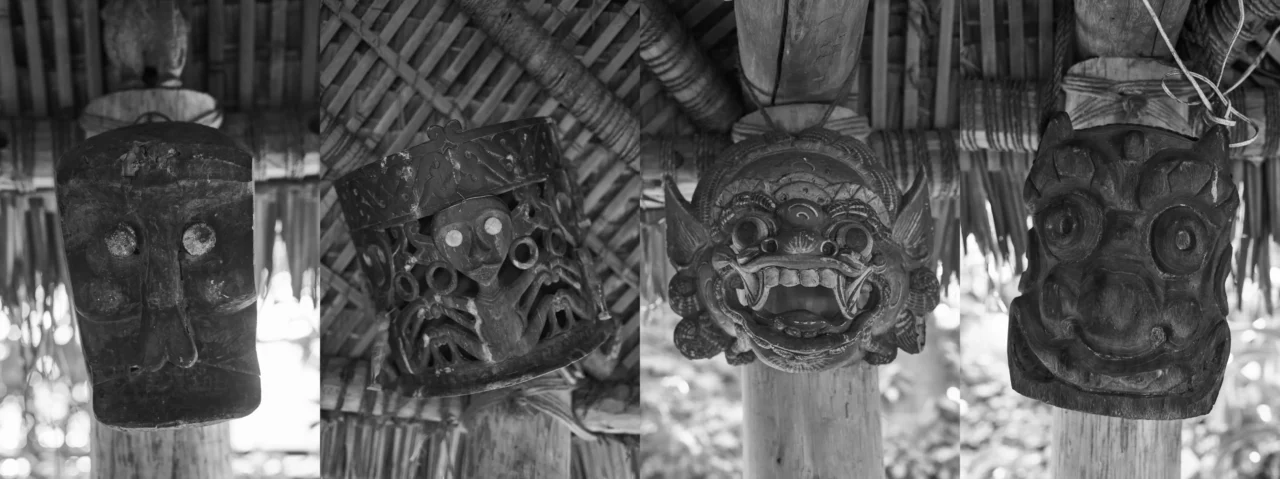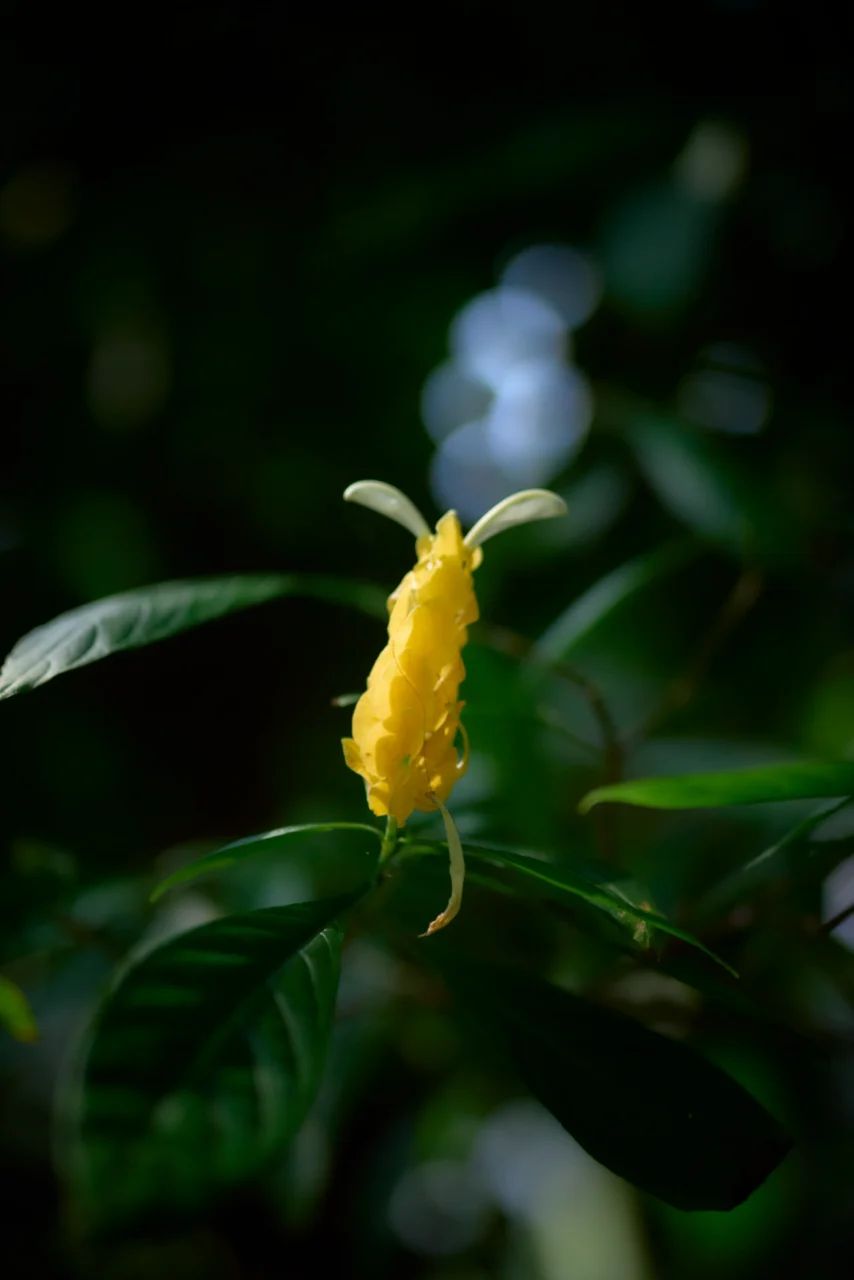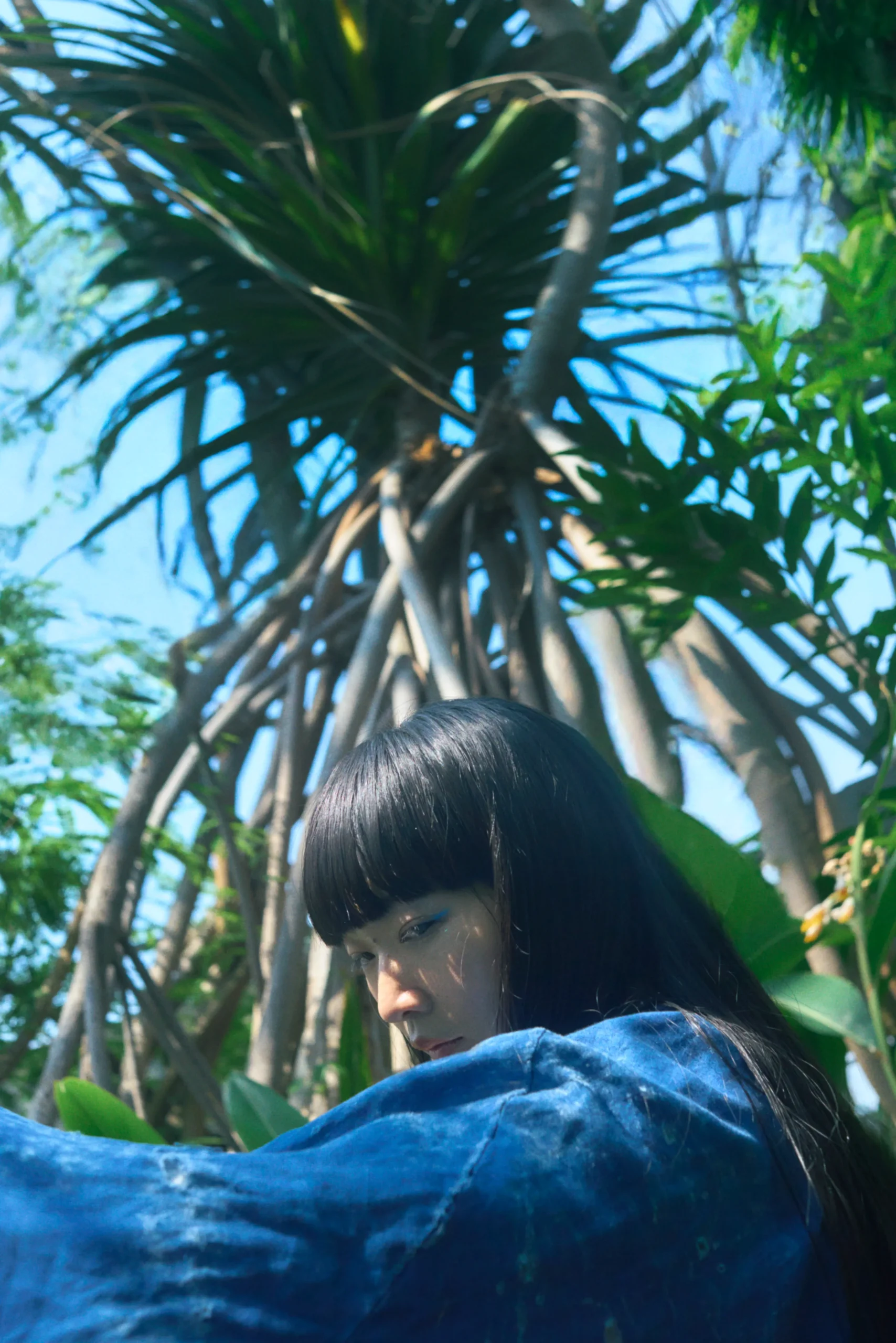INDEX
“Mazamun”: Connecting the World of Hateruma’s Nee-nee and Ichiko Aoba
Your album Luminescent Creatures, released in February, seems to reflect your connection with Hateruma in many ways.
Aoba: Yes, absolutely. The most obvious example is the second track, “24° 3′ 27.0″ N, 123° 47′ 7.5″ E,” which carries the melody of Hateruma Kudoku. This is a song sung in the village where I take part during Mushaama, and it was actually the first song I was taught there.
Verses one through four are sung in standard Japanese, while the fifth verse is written in the Hateruma dialect. On my album, I perform that part in the dialect.
The third track on the album is called “mazamun.” In the Hateruma dialect, that means “demon” or “yōkai,” right?
Aoba: Yes. For many years, people on the island have told me, “There’s a mazamun here,” and ever since, I make a point of saying “hello” whenever I pass by that spot.
Has it always stayed in the same place?
Aoba: That’s right. Even after several people tried to drive it away during rituals, it never moved. At one point, the family said, “If it’s not causing trouble, it can stay,” so it seems to still be there [laughs]. Ever since I heard that story, I’ve been greeting it whenever I pass. When I told my nee-nee about it, she cried tears of joy, saying, “I’m so happy to have a friend I can talk about mazamun with like this.”
She was happy because you didn’t dismiss the existence of the mazamun.
Aoba: I wrote the lyrics for “mazamun” based on my own image, but when I showed them to my nee-nee, she said it matched exactly what she always saw there. We shared the same vision, like, “Yes, that’s where the boat of light comes.” Talking about mazamun made me feel closer to her—I wonder if the mazamun itself brought us together.
Some people in the village must be scared of mazamun, though.
Aoba: I’m sure there are people who think that way. It might be a demon, but it hasn’t actually done anything to me. Humans gave it the name “demon,” so it’s hard to say what’s really wrong with it.
In a sense, mazamun feels like nature itself, both something to be feared and revered, and something you can sometimes form a connection with.
Aoba: I think so too. I imagine it’s the same on other islands. Often, spots where natural forces are at play become sacred places, like where the tides collide or where rainwater collects mysteriously.



























